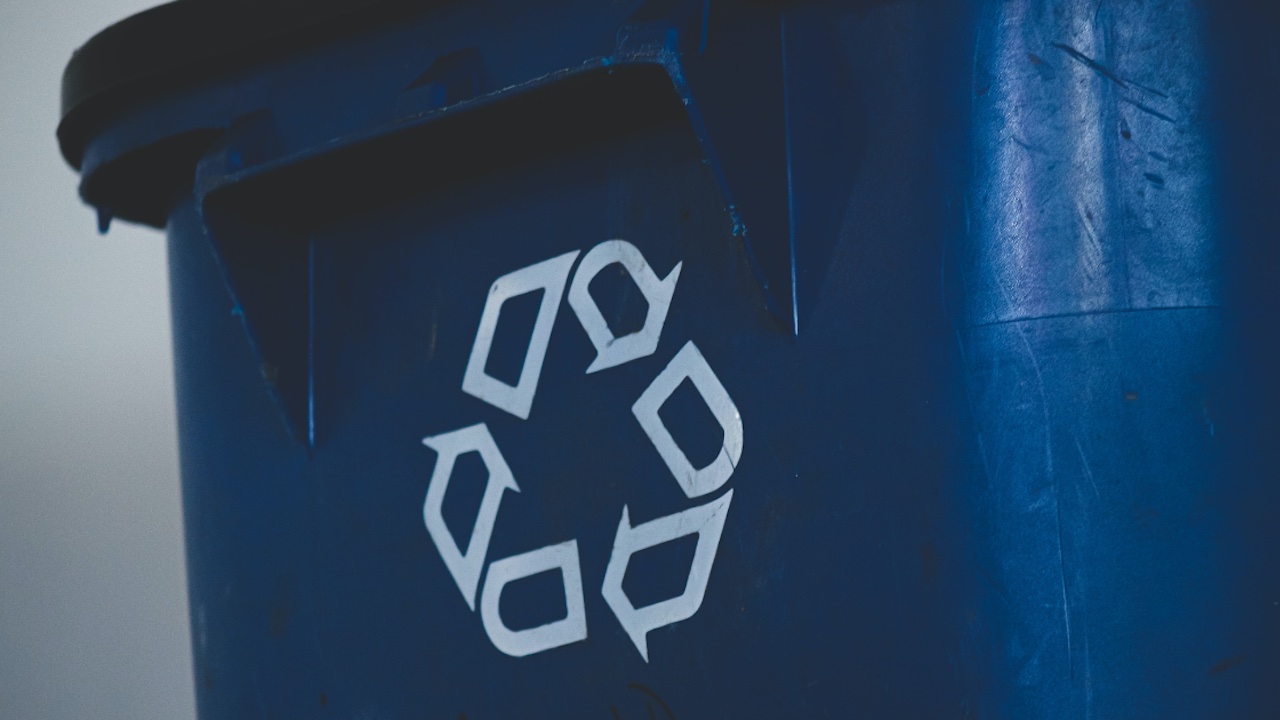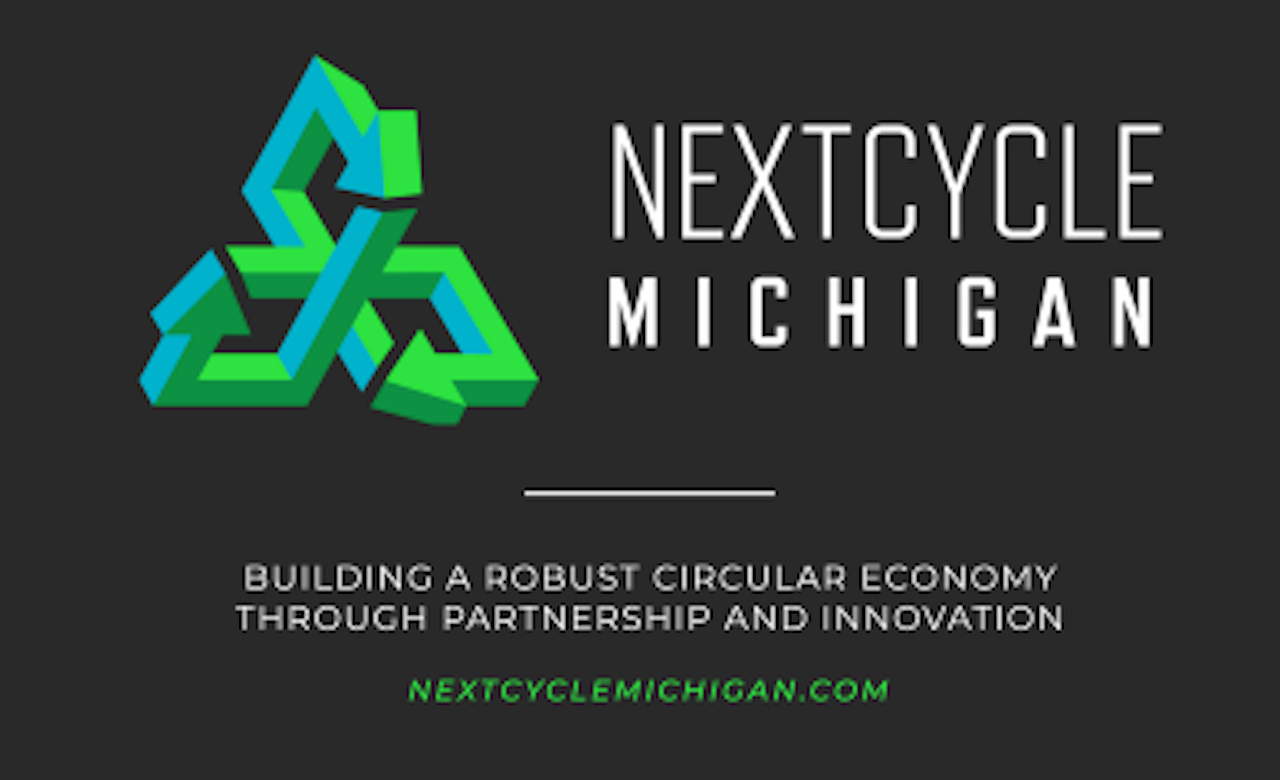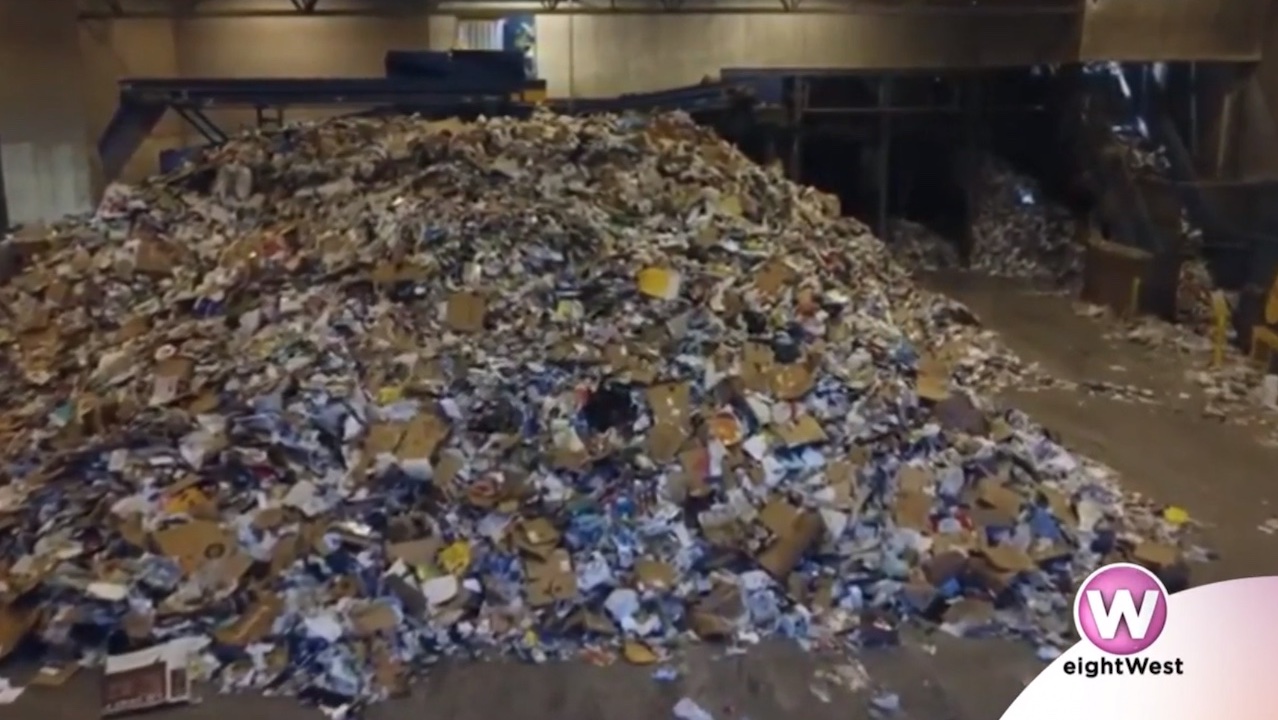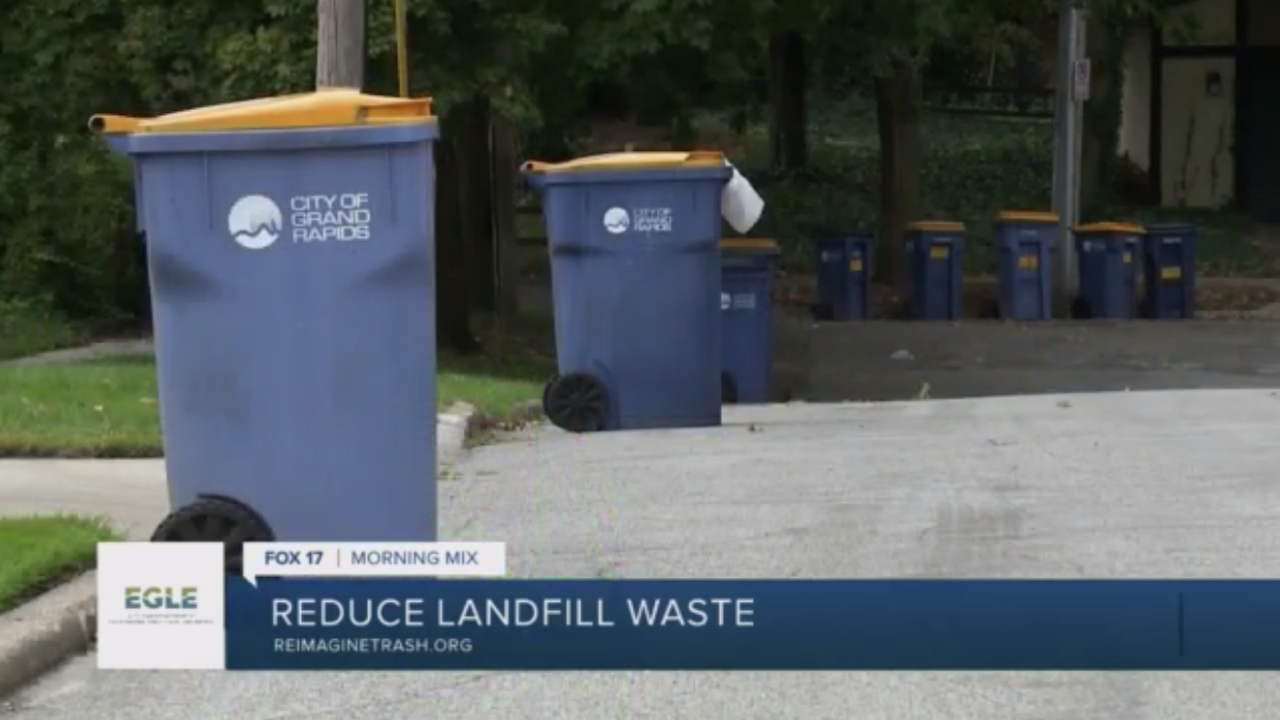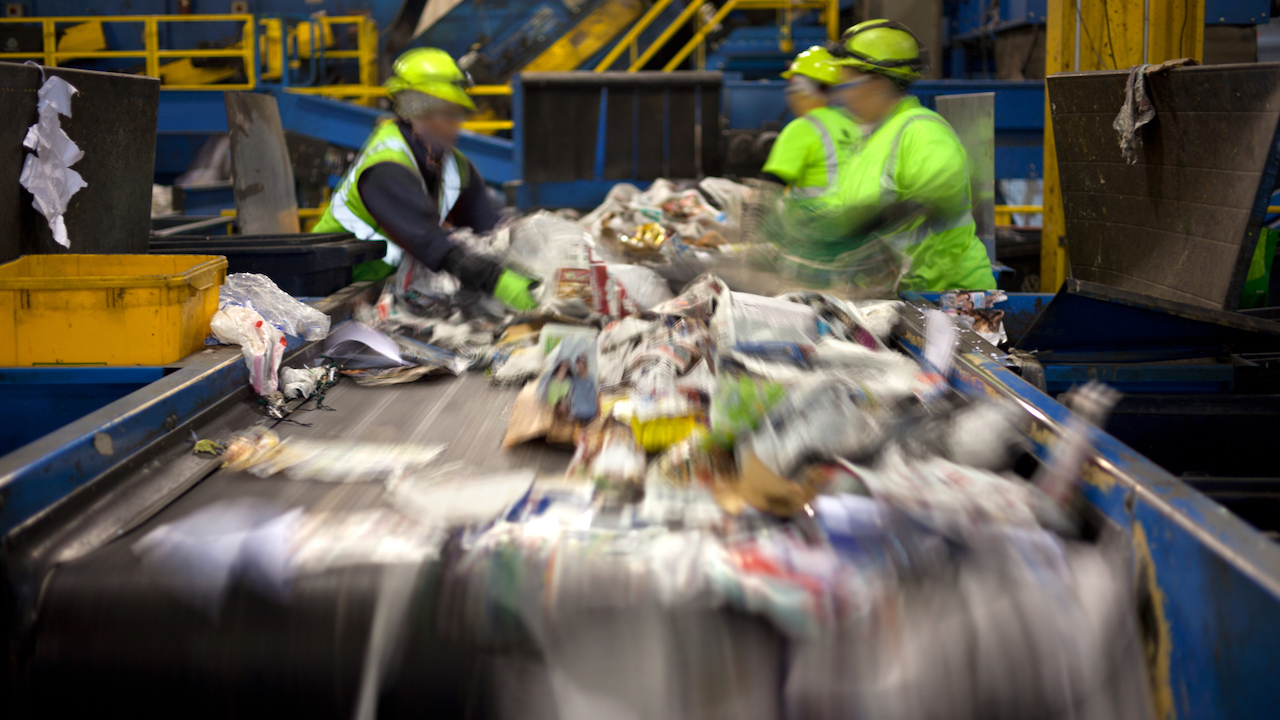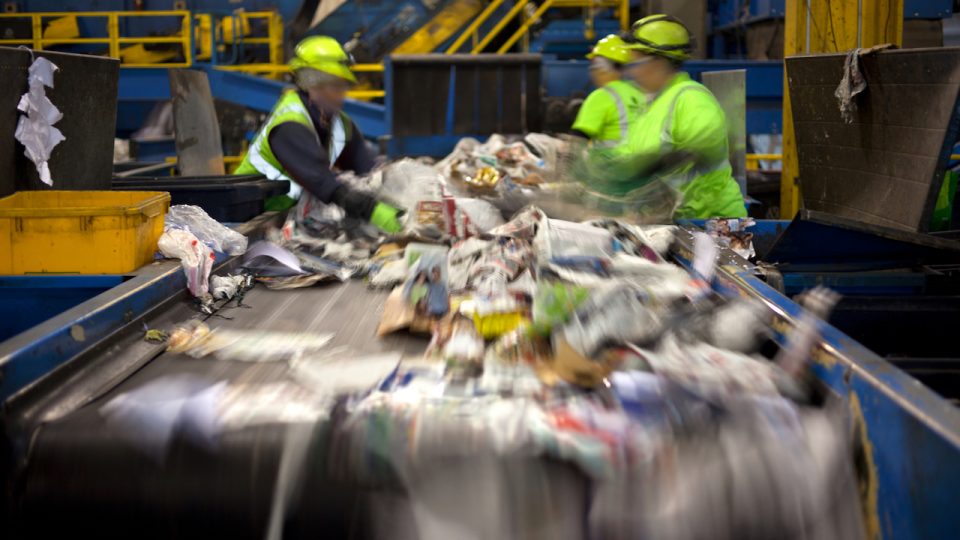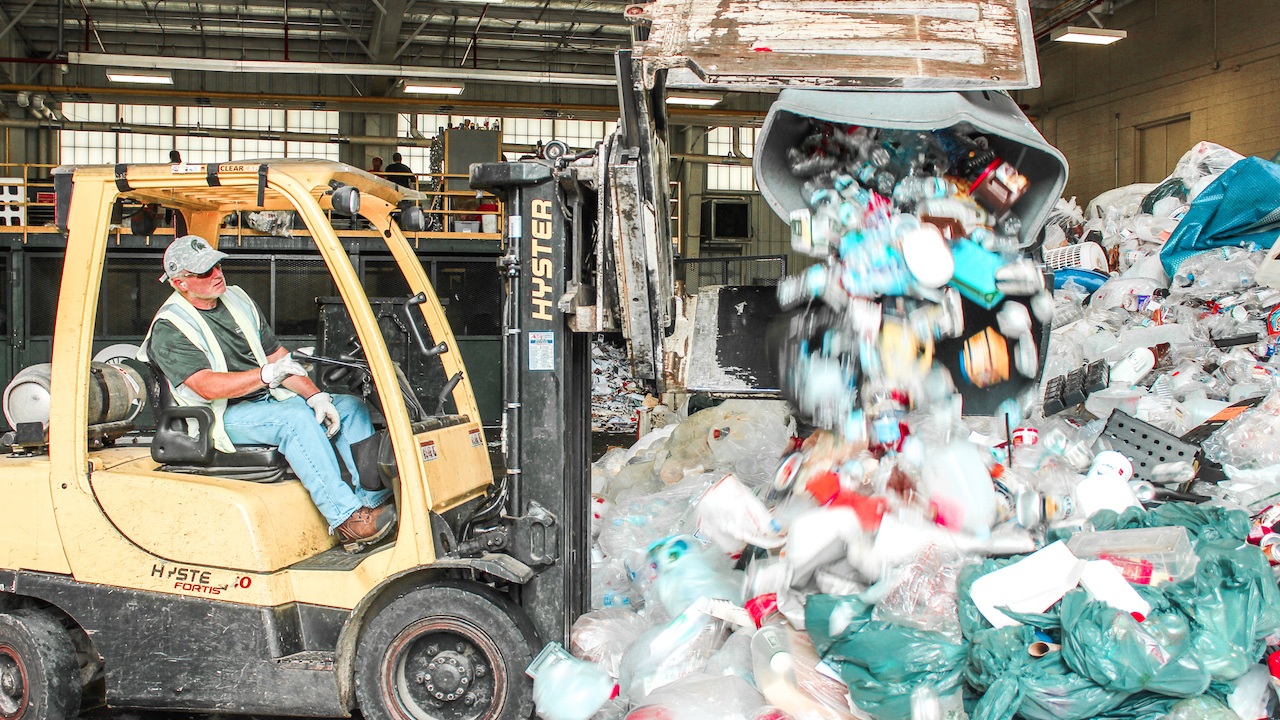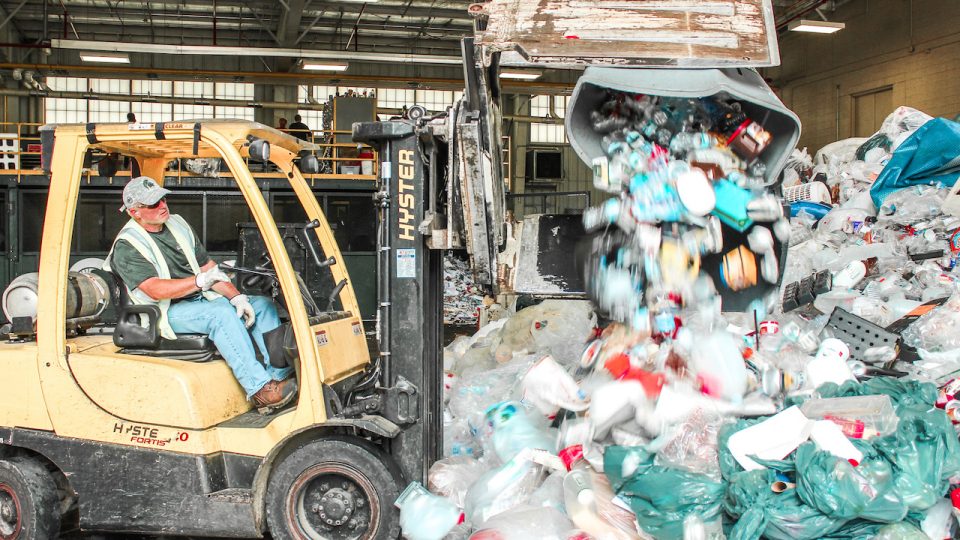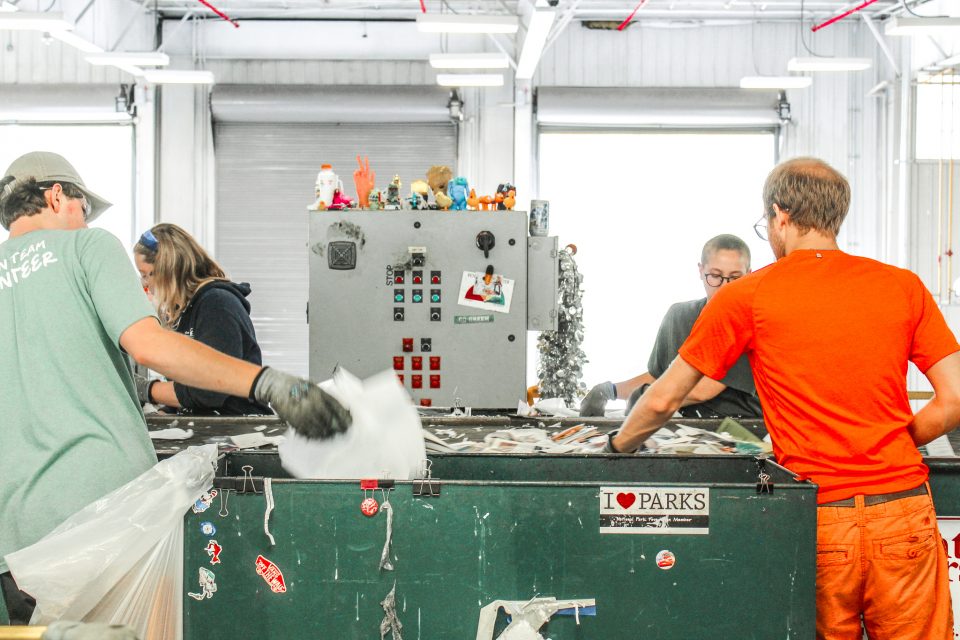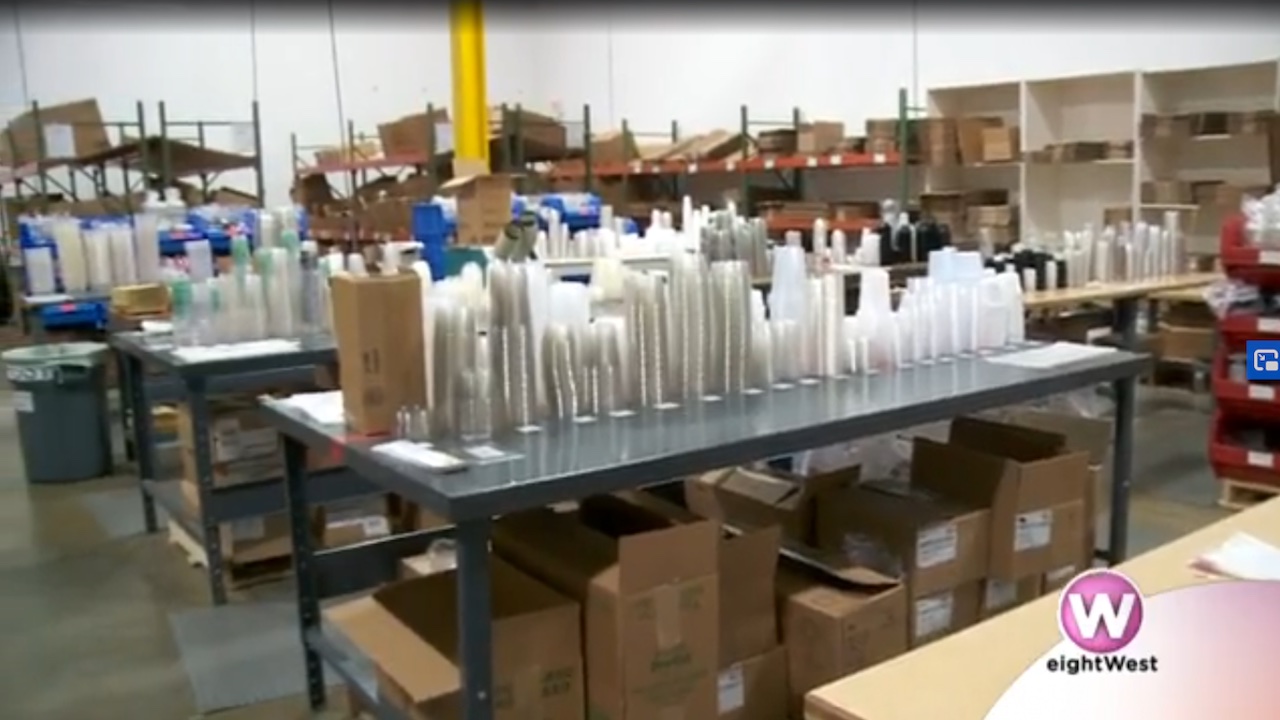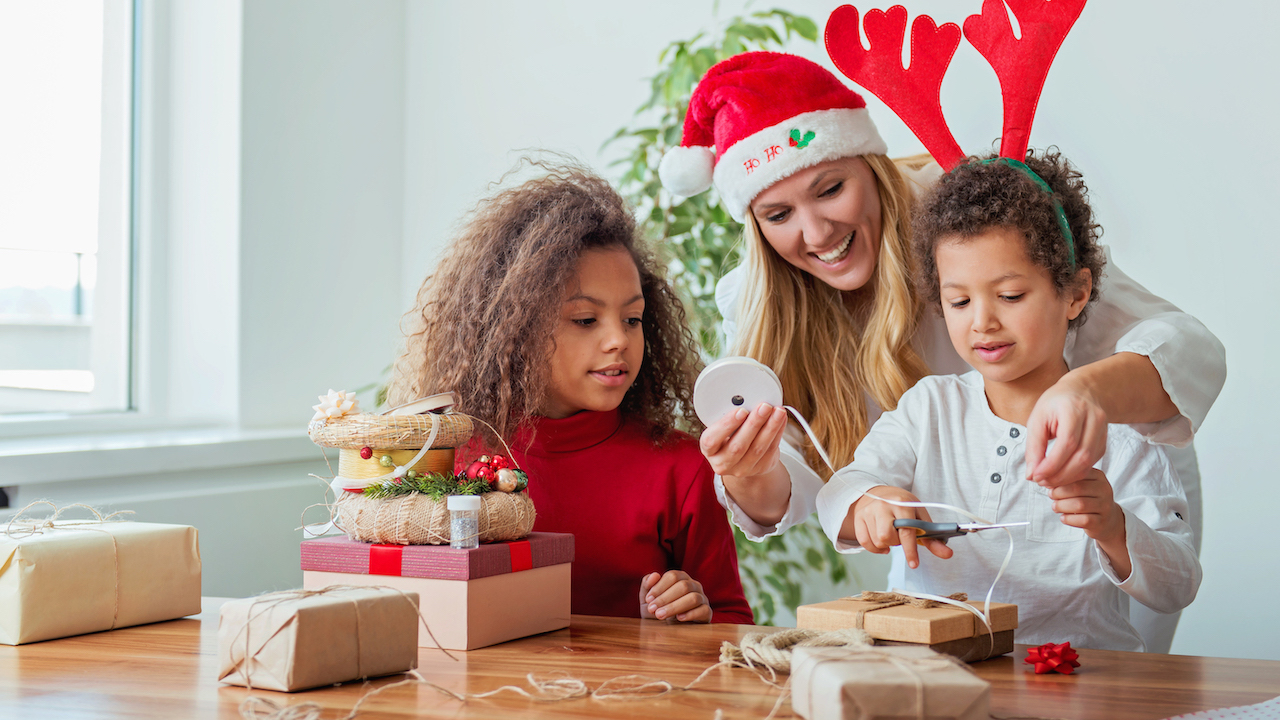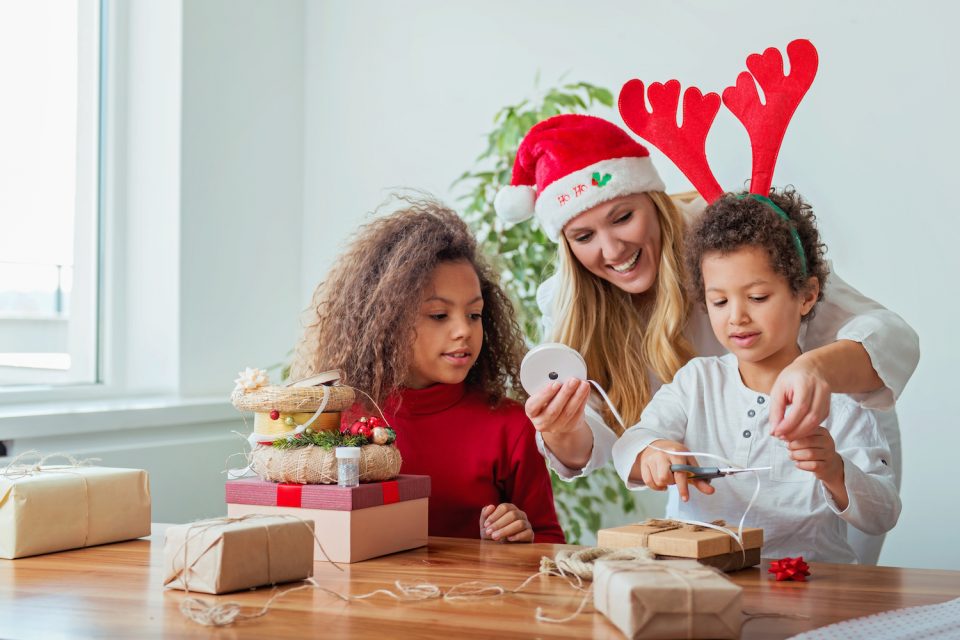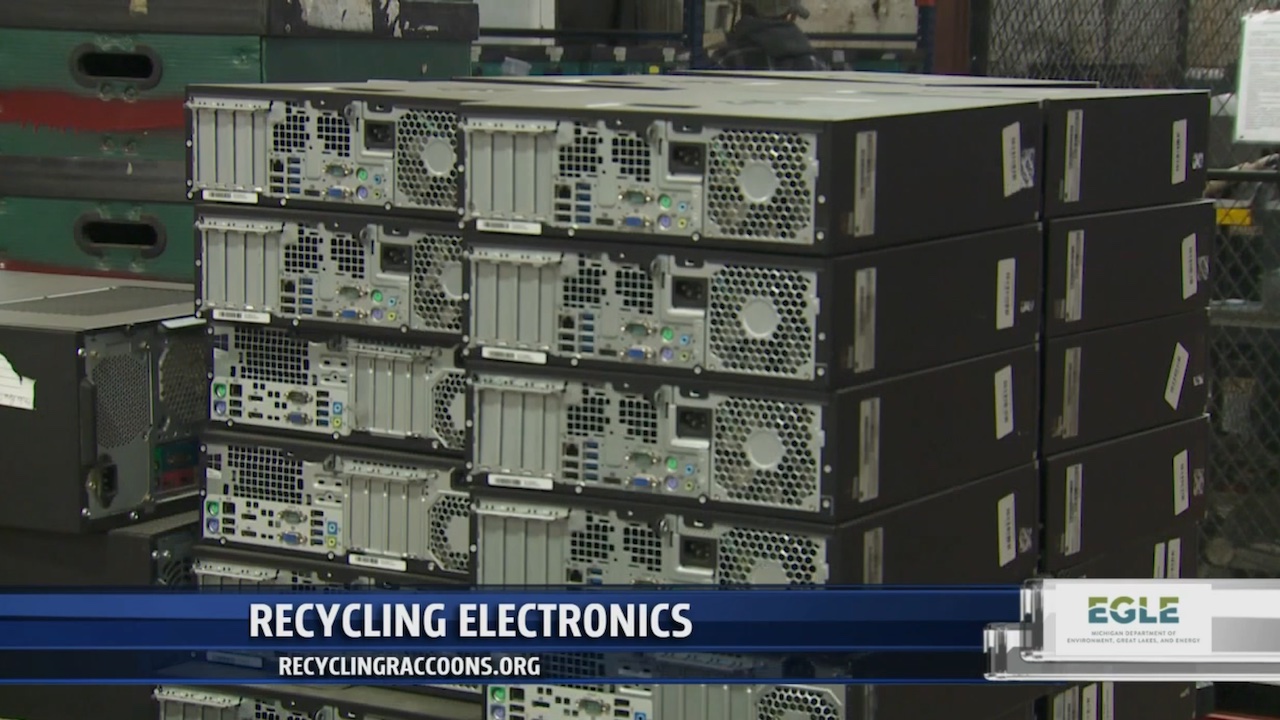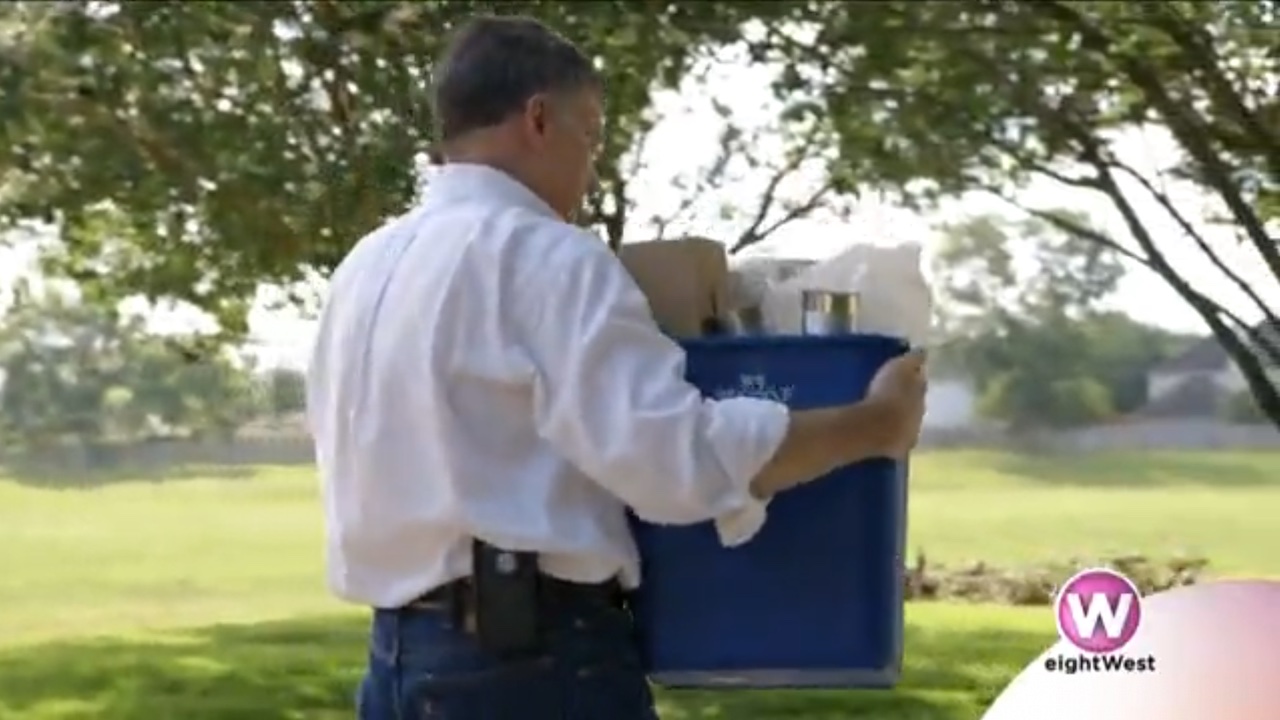To continue the momentum of the national award-winning “Know It Before You Throw It” campaign, and coinciding with the start of Earth Week (April 18-22), EGLE also announced a record $7 million-plus in infrastructure and NextCycle Michigan grants in the largest-ever push to improve recycling opportunities across the state during 2022, particularly impacting Detroit, Pontiac, Flint, Grand Rapids, Alpena and the U.P.
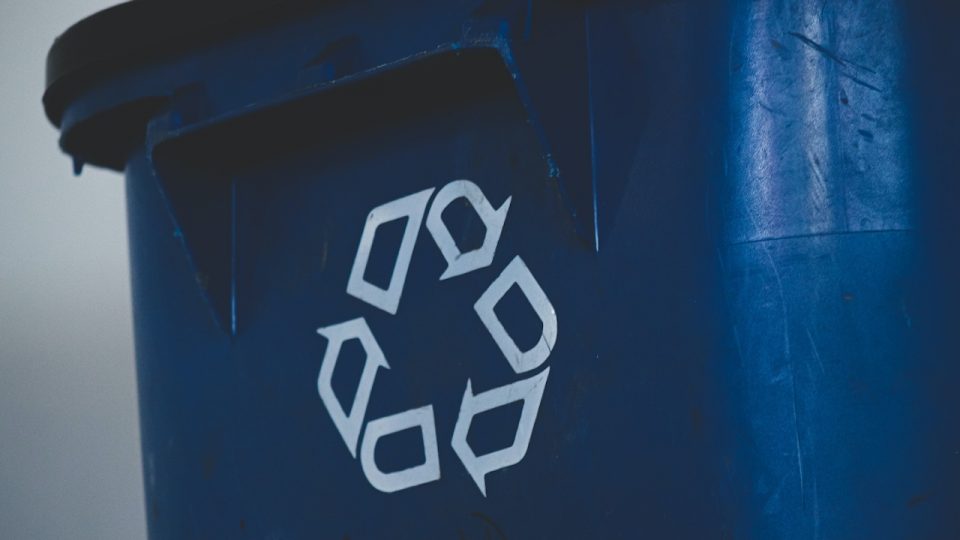
LANSING – Recycling in Michigan has reached a new all-time high, up 35.4% from pre-2019 levels, according to a new analysis released today by the Michigan Department of Environment, Great Lakes, and Energy (EGLE).
EGLE also announced today more Michiganders than ever have access to recycling services. Since 2019, the state has nearly doubled the number of households with available curbside recycling carts and drop-off sites. Nearly 3 million households – three-quarters of the state’s population – now have access to recycling in their communities.
In addition, EGLE has announced grants to business and local government partners in communities across the state totaling over $7 million, more than Michigan has ever invested in recycling infrastructure and technology and far surpassing last year’s record $4.7 million. Among the communities benefitting from EGLE’s newest investments are Detroit, Pontiac, Flint, Grand Rapids, Alpena, Marquette and two Upper Peninsula townships.
“Michiganders are recycling now more than ever before,” EGLE Director Liesl Clark said during a virtual news conference this morning. “This tremendous accomplishment represents a bipartisan effort in a historic partnership with the Michigan Legislature in combination with the nonprofit sector and business community that Michigan has never seen happen before.
“Equally important, EGLE and the Whitmer administration are introducing new opportunities to promote recycling, help support our climate change goals, and create new jobs in communities that have been historically underserved by our state, including Detroit, Flint, Pontiac, and Grand Rapids,” Clark said.
The results come from a more than three-year review of statewide data by EGLE researchers that coincided with the launch of EGLE’s national award-winning “Know It Before You Throw It” recycling education campaign featuring the Recycling Raccoon Squad. The aim of the campaign that began in 2019 is to increase recycling and promote best practices to reduce contamination of materials with unsuitable or nonrecyclable items in recycling bins and at drop-off sites.
The data released today shows:
- Michigan has steadily increased its recycling rate from what was historically the lowest in the Great Lakes region. The rate has risen 35.4%, from 14.25% prior to 2019 (a newly revised EGLE estimate from previous projections of 15%), and peaking to 19.3% now, based on the EGLE analysis.
- This equates to Michigan now capturing over 500,000 more tons of cardboard boxes, milk cartons, plastic bottles, organic material and other recyclables equating to over 110 pounds per-person each year.
- Michigan’s recycling industry is now processing 440,828 tons of material annually (not including organic materials, e.g. that explains the 60,000 ton discrepancy from the previous bullet) which Michigan businesses are using to put back into local economies. Sorted recyclable material from Michigan households and businesses feed into new more environmentally friendly products and support business models which are based on the use of recycled materials.
- More Michiganders than ever have access to recycling opportunities. Roughly 75% of Michigan residents – approximately 2.9 million households – now have curbside recycling access or drop-off sites available.
- More than $460 million has been invested in recycling for new technology, robotics with artificial intelligence, fleet maintenance improvements, equipment upgrades, and hiring new employees since 2019, with nearly 80% of that investment coming from local government, nonprofits, and businesses across the state.
- For every $1 that EGLE provides in grants from its Renew Michigan and NextCycle Michigan recycling initiatives, the return on investment in additional spending by private businesses, local governments, and nonprofits is $10, which combined is helping drive Michigan’s plan to develop markets that will capture an ever-increasing stream of recycled content.
“The NextCycle Michigan and Renew Michigan grants announced today mark the largest push in state history to promote recycling activities that divert materials from Michigan landfills, boost local economies, and support Gov. Whitmer’s climate change priorities through reductions in greenhouse gas emissions,” said EGLE Materials Management Division Director Liz Browne.
The funding is part of EGLE’s strategy to support recycling infrastructure, improve the quality of recyclable materials, and promote market development using the Renew Michigan Fund, which the Legislature created in 2019 to bolster the state’s recycling efforts. Gov. Gretchen Whitmer and the state Legislature are committed to raising Michigan’s recycling rate to 30% by 2025 and 45% by 2030, exceeding the national recycling rate of 32%.
Today’s announcement by EGLE comes in advance of the release on Thursday, April 21, of the MI Healthy Climate Plan, commissioned by Gov. Whitmer as a broad-based roadmap to a sustainable, carbon-neutral Michigan economy by 2050. Carbon neutrality is the global science-based benchmark for reducing greenhouse gas emissions to avoid the most devastating and costly impacts of climate change.
“State decision-makers wisely understood that partnering with Michigan’s nonprofit sector and business community to help develop market-driven solutions was critical to improving Michigan’s waste and materials management processes and advancing its climate change goals,” said Jill Martin, director of community programs for The Recycling Partnership, the national nonprofit teaming with EGLE and Michigan communities this year on recycling initiatives across the state.
“The Next Cycle initiative and Renew Michigan infrastructure grants are an important piece of accomplishing those goals,” Martin said. “We’re tremendously impressed by what we’re seeing happen in Michigan with regard to increasing its investment in recycling. By helping to build out domestic markets for recycled goods, we help to support key Michigan industries like automotive, construction materials, and paper product manufacturing, while also preserving the environment for the next generation.”
Highlights of the grants announced by EGLE today include:
- Flint: A $300,000 Renew Michigan grant to support an $8 million project by Flint-based ACI Plastics to build a recycling system that will process 25 million pounds of postconsumer plastic film each year and create 25-30 new jobs to operate the plant with wages from $17-$20 per hour when it launches in 2023.
- Detroit: A $202,000 Renew Michigan grant to make it easier than ever to recycle at all City of Detroit parks and some neighborhoods beginning this spring. It’s part of a roughly $300,000 effort by the City of Detroit to continue to expand its residential recycling program by providing 64-gallon curbside carts, and to boost recycling opportunities in public parks. The project will support environmental justice by benefitting an underserved community and provide increased access to recycling for all visitors at Detroit’s city parks and via expanded curbside collection for city residents.
- Southeast Michigan: A $135,000 Renew Michigan grant to support a project that will expand recycling in commercial sectors of Oakland, Macomb and Wayne counties. This grant will enable minority-owned, Pontiac-based Essential Recycling to increase collection and tracking of recycled material recovered across the three counties. Educating the construction and skilled trades industries on the value of recycling is an important component of what Essential Recycling aims to achieve. Essential Recycling is partnering with the Pontiac United Education Coalition, Pontiac Chamber of Commerce, City of Pontiac, Oakland County, local governments in the tri-county region, and Michigan Works! to provide graduating high school seniors with career opportunities in the recycling industry.
- Upper Peninsula: A $251,000 Renew Michigan grant that helps fund the largest expansion of residential recycling in the Upper Peninsula in 2022. The grant helps fund a total project budget of nearly $500,000 for the City of Marquette to provide 96-gallon curbside recycling carts to all single-family residences (6,100 households and 100 businesses), in place of the resident-provided containers currently in use. Residents in Ely Township and Michigamme Township also will receive 64-gallon curbside recycling carts with EGLE grants. Those three communities and EGLE will partner with The Recycling Partnership, a national nonprofit, which will provide additional funding for carts and promote an education campaign.
- Alpena: The Alpena Resource Recovery Board of Directors and the Northeast Michigan Council of Governments (NEMCOG) will be receiving a $1 million EGLE grant through Renew Michigan to support construction of a more than $5 million new recycling center near the Alpena County Regional Airport on Airport Road. Local stakeholders are now in discussions for a $1 million-$3 million loan request from national nonprofit Closed Loop Fund that, if approved, will leverage Closed Loop Fund’s support to capture committed match funding from national trade association leaders Carton Council of North America and the Food Packaging Institute that will finalize financing for the project.
- Grand Rapids: A more than $275,000 EGLE grant with support from NextCycle Michigan to Grand Rapids-based Wormies, a composting business founded in 2017 specializing in vermicomposting (composting with worms) serving the Grand Rapids community. At the core of its operation is the production of castings (worm poop) for farm and garden use. Wormies’ mission is to change the way the Grand Rapids community manages organic waste by achieving a 100% diversion from landfills. Its vision is to see Wormies composting in every neighborhood and for Grand Rapids to set the standard nationwide for responsible waste management. The EGLE grant is supporting Wormies’ plan to move from its current 1/4-acre location in Jenison to a new 13-acre site in Cascade Township that will feature a state-of-the-art regenerative natural ecosystem farm, pollinator gardens and a biodiversity pond that will increase production of its highly sought-after premium soil product line.
“These strategic investments EGLE has announced today reflect the commitment of communities across Michigan to finding modern and scalable solutions across our entire recycling system,” Clark said. “It is critical that EGLE continue to work together with the Michigan Chamber of Commerce, our partners in the Michigan Legislature, the private sector, nonprofits like The Recycling Partnership, and at the federal and local levels to ensure we achieve our state’s goals for sustainable operations.”
EGLE also announced today new findings from an EGLE-commissioned survey conducted August-September 2021. The statewide and regional data show Michiganders’ understanding of recycling best habits has increased in every corner of the state. EGLE leaders attribute much of Michigan’s improved recycling success to the state’s “Know It Before You Throw It” awareness push. The survey results show:
- 58% increase in knowledge that food residue ruins recycling. In the U.P., the increase was 124%.
- 47% increase in knowledge that “tanglers” can ruin a recycling load.
- 25% decrease in the belief that it’s OK to place nonrecyclable items in recycling because someone will sort out nonrecyclable items later.
- 51% decrease in Central Michigan, and 38% decrease in West Michigan, in the belief among residents with curbside recycling that plastic bags are accepted at the curb.
- 47% of Michiganders – and up to 54% in the U.P., 55% in the Lansing area, and 64% in Northern Michigan – recognize the Recycling Raccoons campaign.
- 78% of people who recalled the campaign said it made them more mindful of their recycling behavior or changed a recycling behavior. That figure was as high as 87% in Metro Detroit and 89% in Northern Michigan.
- 7 in 10 Michiganders say they learned something new from the ads.
Two examples of how the Know It Before You Throw It Recycling Raccoons’ message is having a positive impact in every region of the state come from data that shows increased knowledge that food residue ruins recycling and that plastic bags should not be included in curbside recycling bins or at drop-off sites.
Statewide, there has been a 58% increase in knowledge that food residue ruins recycling. That includes:
- A 48% increase in Southeast Michigan.
- A 67% increase in East Michigan.
- A 57% increase in West Michigan.
- A 64% increase in Central Michigan and the Lansing-Jackson area.
- A 59% increase in Northern Michigan, and
- A 124% increase in the Upper Peninsula.
Statewide, there also has been a 14% decrease in the mistaken belief among residents with curbside recycling that plastic bags are accepted at the curb. That includes in:
- Southeast Michigan, where half of Metro Detroit households report recycling plastic bags in their curbside bins or carts – which is a no-no for all recycling programs across southeast Michigan.
- West Michigan, which has seen a 38% decrease in belief among residents with curbside recycling that plastic bags are accepted at the curb.
- East Michigan, which has seen a 19% decrease in belief among residents with curbside recycling that plastic bags are accepted at the curb.
- And in Central Michigan, there’s been a 51% decrease in belief among residents with curbside recycling that plastic bags are accepted at the curb.
